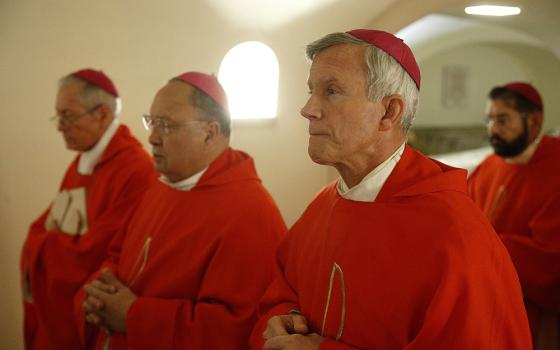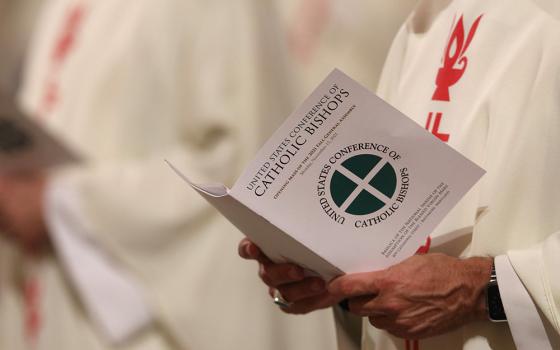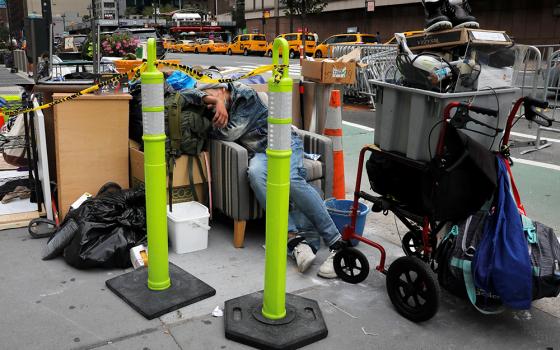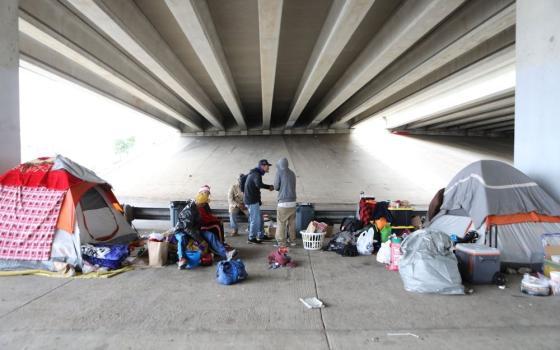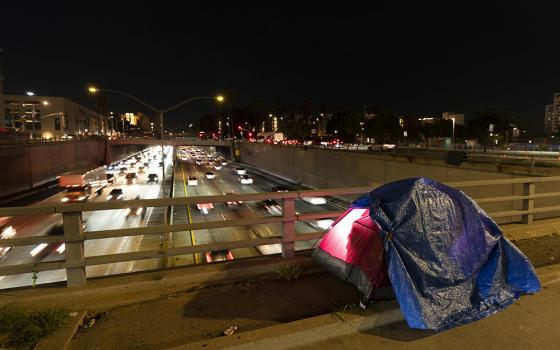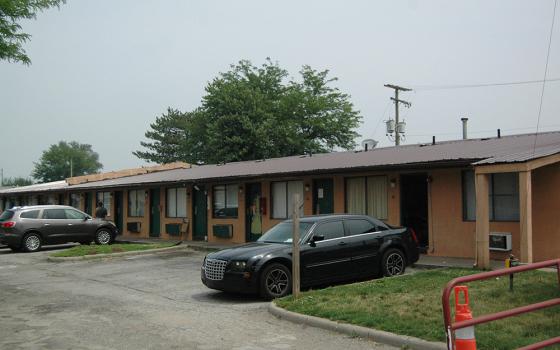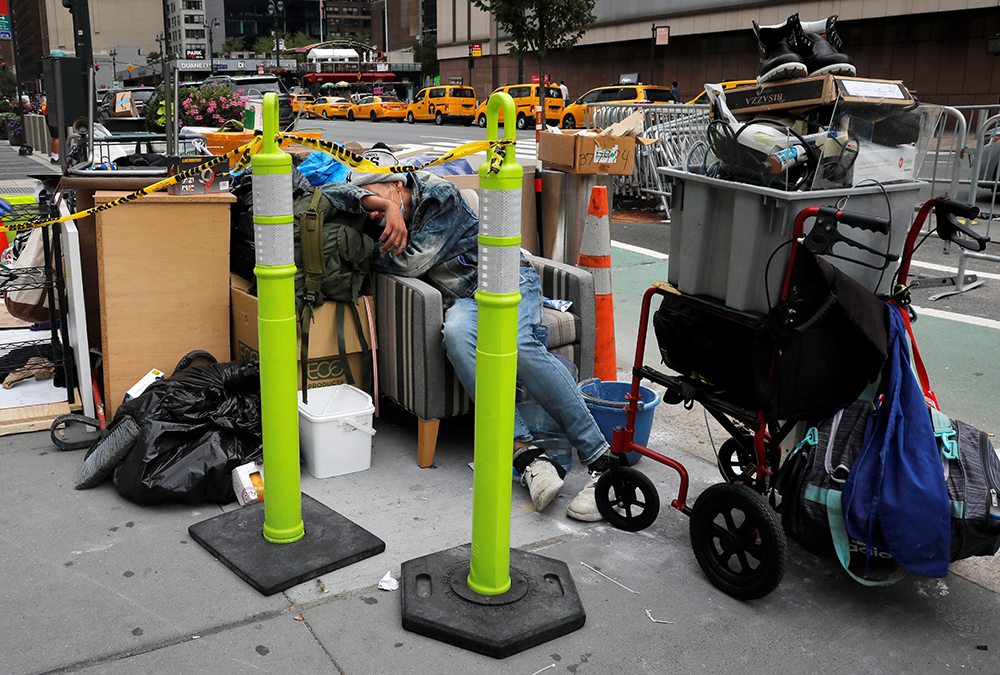
A homeless person in New York City sleeps among belongings Aug. 31, 2020. (CNS/Reuters/Mike Segar)
Having grown up in a privileged suburb outside of Des Moines, I never really encountered homelessness until traveling while in my program of study in college, when I met an unhoused man named Michael on a pier in Mississippi. After conversing with Michael over a late night meal at Waffle House, I had an "aha moment": Michael's homelessness was revealing my own. His yearning for a place of acceptance and home called forth my desire to belong, no matter my faults, no matter my weaknesses, in a place I too could call home.
As authors Steven Bouma-Prediger and Brian J. Walsh point out in their new book Beyond Homelessness: Christian Faith in a Culture of Displacement, homelessness has entered the main stage in many spheres of our society. The most public form we see is inadequate housing, which forces those affected to camp outside, couch surf or trade housing for substances.

But Bouma-Prediger and Walsh don't stop there. Beyond Homelessness claims that homelessness "is a matter of 'placelessness' " where one lacks a sense of connection, identity and love. This means homelessness could be experienced not just by the unhoused, but also by those who might have multiple houses, travel endlessly or are dislocated from their original place of home, such as refugees.
The authors illustrate this point through the cases of Kenny and Kenneth. Kenny is an unhoused male with deep connections to his unhoused peers as a family of sorts; Kenneth is a traveling executive who has multiple houses but never feels at home. If the problem of homelessness takes both these and other forms, how large is our homeless population, really? How large is the population without a place where they encounter love, affirmation and a sense of belonging? If this definition of homelessness is true, so is Mother Teresa's critique of the West: "The greatest disease in the West today is not TB or leprosy; it is being unwanted, unloved, and uncared for."
Beyond Homelessness explores the meaning of "home" and emphasizes God's covenantal and homemaking love for humanity. The authors nod to Barbara Kingsolver's theory that home is simply a place of belonging — and a place where we share that belonging with others. If we have been gifted a place of belonging, love and affirmation, isn't it our responsibility to share that with others? Sadly, most of us are more homebreakers than homemakers. Our commitment to one another is so small compared to God's commitment to us.
Advertisement
My dinner with Michael at a random Waffle House in Mississippi has transpired over the years into a vocation of living with and alongside people searching for a home in a Catholic Worker house of hospitality in central Iowa. Here, I am reminded daily by those who enter my home that I myself am welcomed into God's home. "Man cannot 'fully find himself except through a sincere gift of himself,' " wrote Pope John Paul II (quoting Gaudium Et Spes). I have found that to be true.
Beyond Homelessness reflects what I have learned in my experience of homeless ministry: Providing housing is not the same as homemaking. The authors include the U2 lyric, "A house doesn't make a home." From the origin of the United States welfare programs in the late 1930s, our society has assumed that the government has the resources to solve homelessness.
Quite the contrary.
It's true that the government has the resources to house people — and, yes, housing is a fundamental human right and is necessary for the experience of home. But addiction remains addiction and loneliness remains loneliness, even when you are housed in your new single bedroom apartment. The house is a tool to achieve the experience of a home.
'In my experience, I have lived alongside some but only next to others.'
—Matt Mitchell
So how might we create spaces of home? "Houses become homes when they embody the stories of the people who have made these spaces into places of significance, meaning, and memory," write Bouma-Prediger and Walsh. In my experience, I have lived alongside some but only next to others. The mere location of habitation does not designate it as a place of love. It is the "doing life together" that creates home. My experience of home from childhood through adulthood was not bound by a physical structure, but by time spent together.
One means of homemaking highlighted throughout the book is the sharing of meals, which is also the backbone of the Catholic Worker model of hospitality. Even those who have never been unhoused can attest to the importance of "breaking bread" together in our culture, in biblical history and in how we worship. Our homemaking God invites all to this feast to consume Christ in our bodies through the gift of the Eucharist. In the Catholic faith, the most intimate encounter we have with God is at the table. So it stands to reason that the most intimate encounter we can have with others is also at the table — where a house can become a home.

